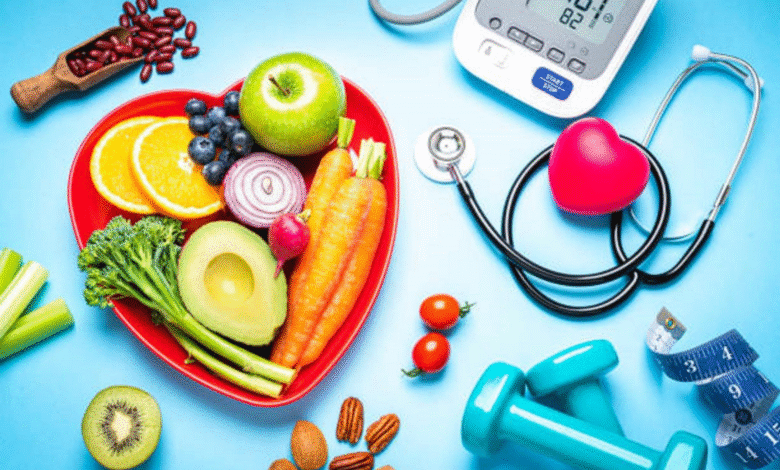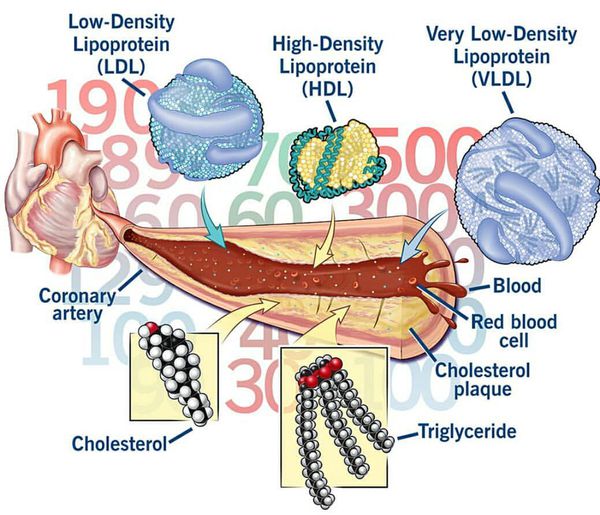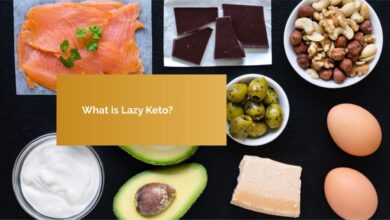
How to Use Fruit to Lower Cholesterol: A Comprehensive Guide
Introduction
- The importance of managing cholesterol levels
- Why fruit plays a key role in lowering cholesterol
Understanding Cholesterol
- What is Cholesterol?
- Types of Cholesterol (HDL, LDL, and Triglycerides)
- Why High Cholesterol Is Dangerous
The Science Behind Using Fruit to Lower Cholesterol
- How Fiber Helps Lower Cholesterol
- Antioxidants in Fruit and Their Impact on Cholesterol
- Phytochemicals and Their Role in Cholesterol Management
Top 10 Fruits to Lower Cholesterol Naturally
1. Apples
- Rich in Soluble Fiber
2. Berries (Blueberries, Strawberries, Raspberries)
- Packed with Antioxidants
3. Citrus Fruits (Oranges, Lemons, Grapefruit)
- Vitamin C and Pectin Power
4. Avocados
- Healthy Fats That Help Reduce LDL Cholesterol
5. Bananas
- High in Potassium and Soluble Fiber
6. Pears
- Full of Fiber and Low in Calories
7. Grapes
- Polyphenols and Cholesterol Regulation
8. Pomegranates
- Antioxidants That Lower Bad Cholesterol
9. Kiwis
- Rich in Vitamin C and Fiber
10. Papayas
- Enzyme and Fiber Benefits for Cholesterol Control
How to Incorporate These Fruits into Your Diet
- Morning Smoothies
- Fruit Salads and Snacks
- Combining Fruits with Other Cholesterol-Lowering Foods
Additional Lifestyle Changes to Lower Cholesterol
- Exercise and Cholesterol
- Reducing Saturated Fat and Trans Fat Intake
- The Role of Stress Management
Expert Opinions and Research on Fruits and Cholesterol
- Studies Backing the Benefits of Fruit for Cholesterol
- Insights from Nutritionists
Common Myths About Cholesterol and Fruit
- Does Eating Fruit Cause High Cholesterol?
- Are All Fruits the Same in Lowering Cholesterol?
Conclusion
- Summarizing the role of fruit in lowering cholesterol
- Encouragement to make healthy food choices
FAQs
- What fruits are best for lowering cholesterol?
- How much fruit should I eat to lower my cholesterol?
- Can fruit alone lower cholesterol?
- What’s the best time to eat fruit for cholesterol control?
- Are there fruits to avoid for lowering cholesterol?
How to Use Fruit to Lower Cholesterol: A Comprehensive Guide
Introduction
Cholesterol management is crucial for maintaining a healthy heart, especially if you’re at risk for heart disease or stroke. High cholesterol levels can lead to dangerous buildups of plaque in the arteries, which increases the risk of heart problems. But did you know that something as simple as eating fruit can help lower cholesterol naturally?
Yes, you heard that right—fruit! Certain fruits are packed with nutrients, fiber, and antioxidants that can assist in reducing cholesterol levels, especially the “bad” LDL cholesterol. If you’re looking for a natural way to manage your cholesterol, this guide will show you exactly how to use fruit to lower cholesterol and boost your heart health.
Understanding Cholesterol
What is Cholesterol?
Cholesterol is a fatty substance found in every cell of your body. It’s essential for producing hormones, vitamin D, and bile acids that help digest fat. However, there are two types of cholesterol that you need to be concerned about: LDL (low-density lipoprotein) and HDL (high-density lipoprotein).
Types of Cholesterol (HDL, LDL, and Triglycerides)
- LDL Cholesterol (Bad Cholesterol): This is the type of cholesterol that can build up on the walls of your arteries, causing blockages and increasing your risk for heart disease.
- HDL Cholesterol (Good Cholesterol): HDL helps remove LDL cholesterol from your arteries, lowering your risk of heart disease.
- Triglycerides: High levels of triglycerides (a type of fat) in the blood can also increase the risk of heart disease.
Why High Cholesterol Is Dangerous
When cholesterol levels are too high, the excess LDL can clog your arteries, limiting blood flow and leading to serious cardiovascular problems like heart attacks and strokes.
The Science Behind Using Fruit to Lower Cholesterol

How Fiber Helps Lower Cholesterol
Fruits are an excellent source of dietary fiber, particularly soluble fiber, which helps lower LDL cholesterol. Soluble fiber binds with cholesterol in the digestive system and helps remove it from the body.
Antioxidants in Fruit and Their Impact on Cholesterol
Fruits like berries, citrus fruits, and grapes are rich in antioxidants, such as flavonoids, which protect the body from oxidative stress. Oxidative stress can damage LDL cholesterol particles, making them more harmful to the heart. Antioxidants help prevent this damage and support overall cardiovascular health.
Phytochemicals and Their Role in Cholesterol Management
Many fruits contain phytochemicals, which are naturally occurring plant compounds that help lower cholesterol by improving lipid metabolism, reducing inflammation, and protecting blood vessels from damage.
Top 10 Fruits to Lower Cholesterol Naturally
1. Apples
Apples are a fantastic fruit for lowering cholesterol, thanks to their high soluble fiber content, particularly pectin. Pectin binds to cholesterol in the digestive tract and helps remove it from the body.
Learn more about the benefits of apples at Harvard Health.
2. Berries (Blueberries, Strawberries, Raspberries)
Berries are full of antioxidants, fiber, and polyphenols that help lower LDL cholesterol and protect the heart from oxidative damage. Research suggests that consuming berries regularly can improve cholesterol profiles.
3. Citrus Fruits (Oranges, Lemons, Grapefruit)
Citrus fruits are rich in pectin and vitamin C, both of which help reduce cholesterol levels. Pectin helps reduce LDL, while vitamin C has antioxidant properties that prevent cholesterol oxidation.
4. Avocados
Avocados are packed with monounsaturated fats, which are healthy fats that help reduce LDL cholesterol. They also contain fiber, which further aids in lowering cholesterol.
5. Bananas
Bananas are rich in soluble fiber and potassium, which are both important for heart health. Potassium helps regulate blood pressure, while soluble fiber lowers cholesterol by binding to it in the digestive system.
6. Pears
Pears are high in both soluble and insoluble fiber, making them effective in lowering cholesterol and supporting digestion. They are also low in calories and a great addition to a heart-healthy diet.
7. Grapes
Grapes, especially red and black varieties, contain polyphenols that help reduce cholesterol and improve overall heart health. They also have antioxidants that prevent LDL cholesterol from becoming harmful.
8. Pomegranates
Pomegranates are rich in antioxidants, particularly punicalagins, which have been shown to lower LDL cholesterol and improve blood flow. Consuming pomegranate juice can also help reduce plaque buildup in the arteries.
9. Kiwis
Kiwis are high in fiber and vitamin C, which work together to reduce LDL cholesterol. Their antioxidant properties also help protect the heart by preventing oxidative stress on cholesterol particles.
10. Papayas
Papayas are rich in fiber and enzymes, such as papain, that aid in digestion and cholesterol metabolism. They can help break down fats and lower cholesterol levels effectively.
How to Incorporate These Fruits into Your Diet
Morning Smoothies
Start your day with a heart-healthy smoothie made from fruits like bananas, berries, and avocados. Blend them with some leafy greens and water for a nutrient-packed breakfast that supports healthy cholesterol levels.
Fruit Salads and Snacks
Create a refreshing fruit salad with pears, citrus fruits, and grapes. Pair it with a handful of nuts for an added fiber and healthy fat boost.
Combining Fruits with Other Cholesterol-Lowering Foods
Combine fruits with other heart-healthy foods like oats, chia seeds, and flaxseeds for added fiber. These foods work together to reduce cholesterol and improve overall cardiovascular health.
Additional Lifestyle Changes to Lower Cholesterol
Exercise and Cholesterol
Regular physical activity is essential for managing cholesterol. Exercise helps raise HDL (good cholesterol) and lowers LDL (bad cholesterol). Aim for at least 30 minutes of moderate exercise most days of the week.
Reducing Saturated Fat and Trans Fat Intake
Reducing your intake of unhealthy fats, like saturated and trans fats, can help lower LDL cholesterol. Focus on healthy fats from sources like olive oil, nuts, and avocados.
The Role of Stress Management
Chronic stress can raise cholesterol levels. Practice stress-reduction techniques like meditation, yoga, or deep breathing to help manage your cholesterol naturally.
Expert Opinions and Research on Fruits and Cholesterol
Studies Backing the Benefits of Fruit for Cholesterol
Several studies have shown that diets rich in fruits, particularly those high in fiber and antioxidants, can significantly improve cholesterol profiles. For example, a study published in the Journal of Nutritional Biochemistry found that berry consumption can reduce LDL cholesterol and improve cardiovascular health.
Insights from Nutritionists
“Incorporating fruits like apples, berries, and citrus into your daily diet can significantly reduce your cholesterol levels while providing your body with essential nutrients.” – Dr. Anna Thompson, Nutritionist
Common Myths About Cholesterol and Fruit
Does Eating Fruit Cause High Cholesterol?
No, eating fruit does not cause high cholesterol. In fact, most fruits are beneficial for lowering cholesterol, thanks to their fiber and antioxidant content.
Are All Fruits the Same in Lowering Cholesterol?
Not all fruits are equal when it comes to lowering cholesterol. Fruits high in fiber, antioxidants, and phytochemicals are the most effective at reducing cholesterol levels.
Conclusion
Fruit is a delicious and effective way to lower cholesterol naturally. By incorporating cholesterol-lowering fruits like apples, berries, and citrus into your diet, you can improve your heart health and reduce the risk of heart disease. Remember to combine these fruits with a balanced diet, regular exercise, and stress management for the best results.
FAQs
1. What fruits are best for lowering cholesterol?
Apples, berries, citrus fruits, and avocados are among the best fruits for lowering cholesterol due to their high fiber and antioxidant content.
2. How much fruit should I eat to lower my cholesterol?
Aim for 2–3 servings of fruit per day, focusing on heart-healthy options like berries, apples, and citrus fruits.
3. Can fruit alone lower cholesterol?
While fruit is an important part of a cholesterol-lowering diet, it should be combined with other healthy lifestyle habits, like exercise and reducing unhealthy fats.
4. What’s the best time to eat fruit for cholesterol control?
There’s no specific time for eating fruit, but starting your day with a fruit-filled breakfast or adding fruit to snacks throughout the day can help keep your cholesterol levels in check.
5. Are there fruits to avoid for lowering cholesterol?
Fruits with a high glycemic index, such as ripe bananas or mangoes, should be eaten in moderation, as they may not be as effective in controlling cholesterol.





One Comment